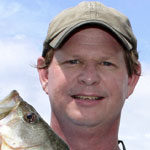
Ban includes area between Third Street East and Third Street West
Folly Beach City Council has banned shark fishing in the Folly Beach pier area. The measure was voted on last night, March 8. It passed unanimously, and includes the area between Third Street East and Third Street West.
Charleston County Parks’ Mark Patrick said he understands this won’t keep all sharks away from the area, but he said stopping people from attracting them is the goal of the ban.
“Sharks are going to be in the area naturally because it’s their habitat, but we don’t want people to draw them in here trying to feed those animals in this area,” said Patrick.
A fine of up to $500 and up to 30 days in jail can be handed down to anyone caught specifically targeting sharks on this part of the coast.
Surf fishermen and anglers fishing from the pier are bound to catch a shark from time to time, so will they be hit with the fine and jail time? Luckily, no, according to Patrick.
“You’re going to catch sharks if you have a small piece of shrimp and a small hook on your rig. You can catch a small shark every now and then and that’s fine. We understand that. We just don’t want people using large hooks and large chunks of bait to lure sharks into the area,” he said.
The call for the ban, which was requested by the Parks and Recreation Commission, came after last summer, which many people have called the “Summer of the Shark,” when a series of shark attacks took place in June and July along the coasts of North and South Carolina. It probably didn’t help that in May, a lot of publicity was given to an angler on the Isle of Palms catching a 10-foot lemon shark while surf fishing.
One of the shark attacks occurred at Isle of Palms County Park when a 12-year old boy was bitten.
While Patrick is happy the ban was passed, some anglers don’t share those feelings. Elton Thurmond of Summerville said the ban is only based on emotion and political pressure.
“I’ve fished for sharks from the beaches all up and down the coast of South Carolina for decades. You’d be shocked at the size of the sharks I’ve caught. You wouldn’t even believe me. And I’ve never chummed or thrown out sides of beef, as some council members claim is happening. Those sharks are there and they’ve always been there and stopping people from fishing for them isn’t going to change that, and it isn’t going to impact how many people are bitten by sharks every year,” said Thurmond.
Thurmond said the only way to end shark attacks is to ban swimming, not fishing for sharks.
“It’s not the shark anglers who are getting bitten, so if you want to end shark bites, ban swimming,” he said.
Dan McGuckin of Team Requiem Fishing is a land-based shark wrangler who, along with other team members like Stan Warren and Mike Popovich are also against shark fishing bans like this one. The biggest problem they have with it, is that no scientific data has been used in determining whether such a ban will be beneficial. They practice catch-and-release fishing, and like Thurmond, regularly catch some very big sharks from the beach. They take careful measurements of the sharks, tag them, and send the data to research agencies such as the Coastal Shark Tagging Initiative.
“We have been working on a project to help study and debunk the myths and misinformation regarding shark behavior, especially in the surf. Requiem has started a non-profit to raise awareness of actual shark behavior and how it affects humans that swim in the ocean. The media would have you believe that fishermen are chumming in sharks by the thousands and that it is leading to an increasing number of attacks. This is simply untrue,” said McGuckin.
Along with SCDNR, Requiem will be working on a study that places acoustic receivers at the mouths of major inlets along South Carolina’s coast. They will also be placed around heavily-fished beaches, and beaches that get little to no fishing activity. Sharks will be tagged with transmitters that will “talk” to the receivers, giving researchers a good look at whether these animals are impacted by fishing.
Requiem team members do their part to keep shark anglers from getting a bad rap. They usually fish in areas that don’t see much swimming activity, they fish at night, and they fish in weather that swimmers won’t venture out into. They also paddle a kayak far out of the surf zone to drop their baits.
To learn more about what Requiem is doing, click here.
Click here to learn more about the Coastal Shark Tagging Initiative.




Be the first to comment